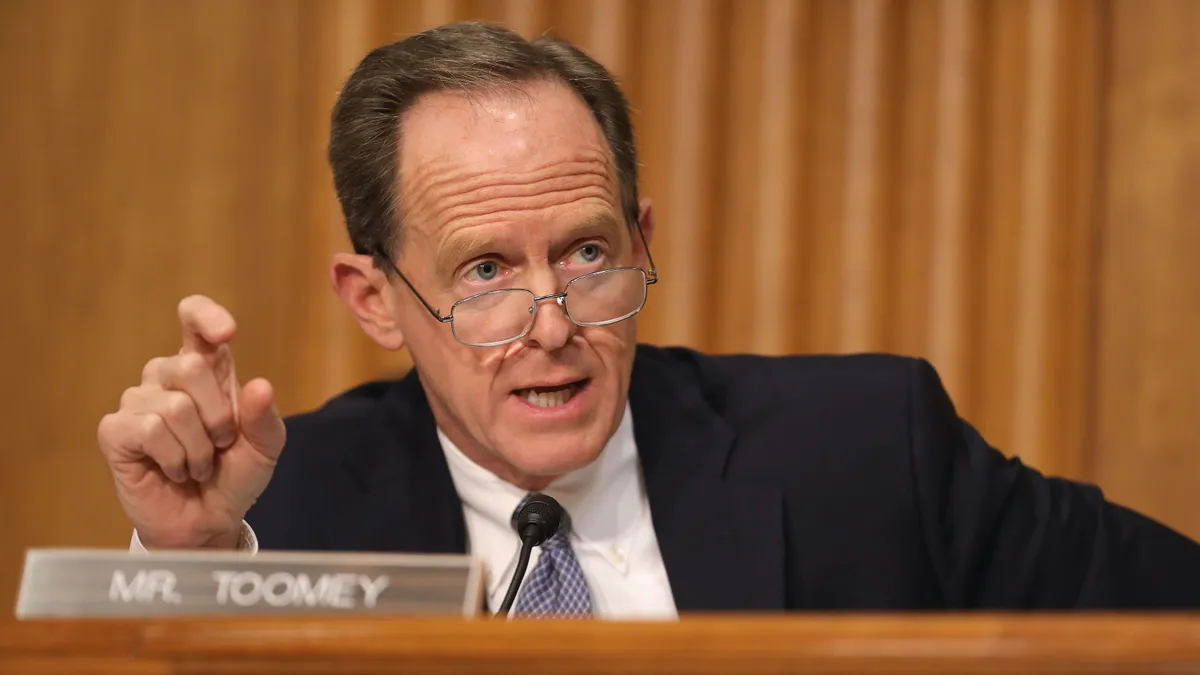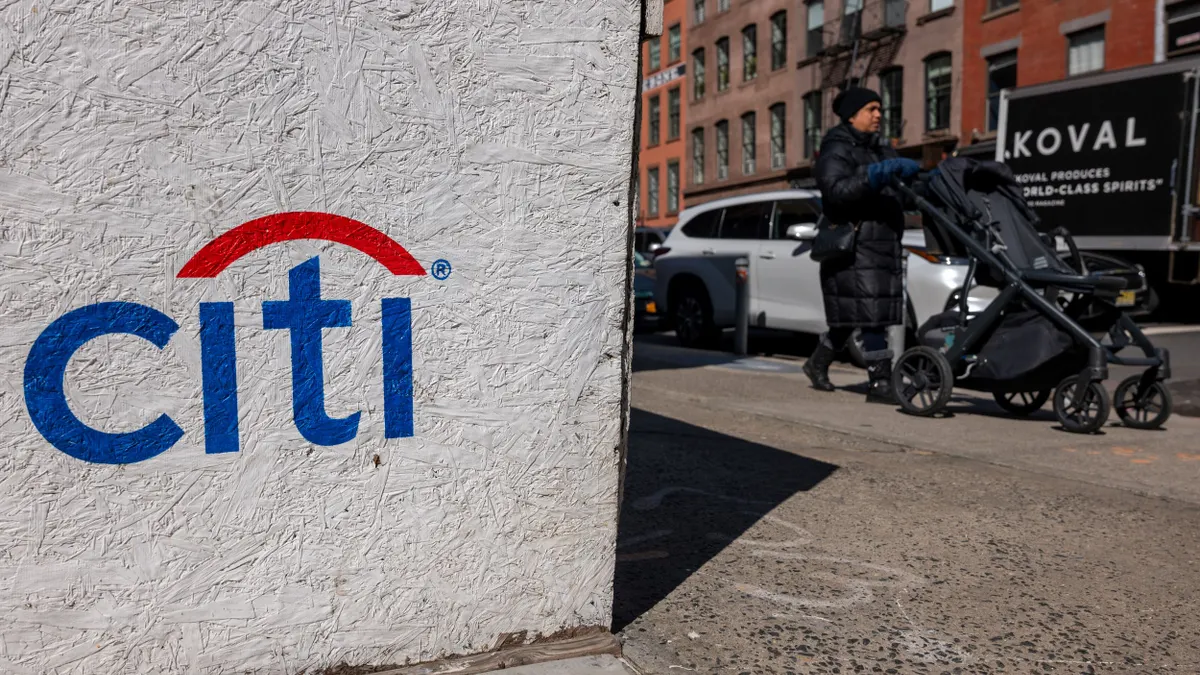President Joe Biden’s nominees for three open slots on the Federal Reserve’s board of governors will face a hearing at 10 a.m. Eastern time on Feb. 3 in front of the Senate Banking Committee, the panel said Tuesday.
Meanwhile, the committee’s ranking member, Sen. Pat Toomey, R-PA, sent Biden a letter expressing his concern over the picks’ lack of diversity.
No, Toomey isn’t referring to race. (Two of the nominees — Lisa Cook and Phillip Jefferson — are Black.)
Or gender. (Cook and Biden’s nominee for vice chair of supervision, Sarah Bloom Raskin, are women.)
Rather, Toomey’s diversity claim is based in geography and professional experience. Toomey cites Section 10 of the Federal Reserve Act, passed in 1913, which reads, “[i]n selecting the members of the Board, not more than one … shall be selected from any one Federal Reserve district.”
Toomey asserts that a majority of Fed board members would call the central bank’s Richmond, Virginia-centered Fifth District home, if Biden’s current nominees were all confirmed, with three residing in the Washington metro area. Additionally, he said, most would be “professors from academia,” rather than an industry.
A White House official, who spoke to Bloomberg on Tuesday anonymously, said the clause — at least according to an Office of Legal Counsel opinion filed in 1977 — was not a strict residency requirement.
Federal Reserve board members can represent areas other than where they live — and many do. Fed Chair Jerome Powell was born in D.C. and lives in Maryland, which lies in the Richmond Fed’s domain, but he represents the Philadelphia-centered Fed district, Bloomberg reported. The most recent vice chair of supervision, Randal Quarles, represented the Kansas City district but grew up in Utah, which is in the San Francisco Fed’s territory.
If confirmed, Raskin would represent the Boston Fed district, the official said. (She was born in Massachusetts and attended both Amherst College and Harvard University, in the district.) Jefferson would represent the New York Fed district. (He worked for the New York Fed and attended Vassar College in the area.) And Cook would represent Atlanta, where she was born.
The specific target
The crux of Toomey’s concern is that, if all three are confirmed, two of the Fed’s seven governors would have experience in the “private economy” and none in the energy sector.
In his letter, Toomey cites a 1913 statement from Rep. William Murray, D-OK, on the Fed board: "This board, if selected east of Washington, would know little and care less about the agricultural and other interests in the Western and Southern States.”
"This concern is equally valid today," Toomey wrote, "though one might replace the phrase 'east of Washington' with “inside the beltway.”
Toomey took aim at one nominee in particular.
“While a lack of expertise at the Federal Reserve Board in any particular industry is inevitable, the demonstrated hostility of one nominee, Sarah Bloom Raskin, toward a sector that supports employment for millions of Americans, is unacceptable,” he wrote.
Toomey has been vocal regarding Raskin's stance in particular on energy companies' role in the exacerbation of climate change.
“Sarah Bloom Raskin has specifically called for the Fed to pressure banks to choke off credit to traditional energy companies and to exclude those employers from any Fed emergency lending facilities,” Toomey said in a statement on the day Raskin's nomination to the central bank was announced. “I have serious concerns that she would abuse the Fed’s narrow statutory mandates on monetary policy to have the central bank actively engaged in capital allocation.”
Raskin, in a May 2020 New York Times opinion piece, criticized the Treasury and Fed for allowing oil, gas and coal companies to be eligible for government-backed emergency-lending relief launched in the early COVID era.
“The decisions the Fed makes on our behalf should build toward a stronger economy with more jobs in innovative industries — not prop up and enrich dying ones,” she wrote.
In a September 2021 op-ed published with Project Syndicate, Raskin wrote, “U.S. regulators will need to leave their comfort zone and act early” to soften “changing climate’s unpredictable — but clearly intensifying — effects on the economy” before the crisis worsens and becomes more expensive.
“While none of [the U.S.’s] regulatory agencies was specifically designed to mitigate the risks of climate-related events, each has a mandate broad enough to encompass these risks within the scope of the instruments already given to it by Congress,” she wrote.
The U.S. Oil & Gas Association and other oil groups wrote a draft letter opposing Raskin’s nomination, Bloomberg reported Tuesday.
“She is a strong advocate for debanking the very industry that powers America,” the groups wrote in one draft. “Her multiple public statements indicate an agenda at odds with the president’s goal of providing Americans with reliable, affordable energy.”
A Brainard precedent
Toomey asked the nominee for the Fed's other vice chair role, Lael Brainard, at her hearing, whether her support for more climate research and analysis at the Fed was "a precursor to direct capital away from" fossil-fuel companies.
"We would not tell banks which sectors to lend to or not lend to, but we do want to make sure they are measuring, monitoring and managing [their] material risks,” Brainard said.
Toomey's letter Tuesday may be an effort to raise the stakes against nominees seen as climate advocates. While Toomey can't control what nominees say in hearings or how other lawmakers interpret that, he can make an argument that confirming certain nominees is tantamount to breaking the law — whether or not it's a stretch.
The senator asked Biden to explain how his nominations comply with the Federal Reserve Act’s requirement that “due regard” be shown to the “fair representation of the financial, agricultural, industrial, and commercial interests, and geographical divisions of the country.” Additionally, he asked what characteristics qualify a Fed governor to represent a district, and how that might change.





















